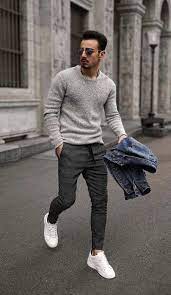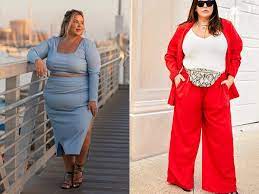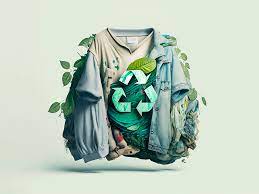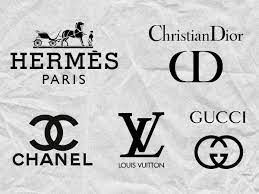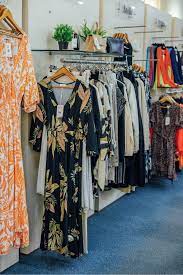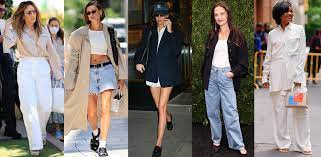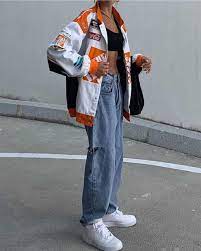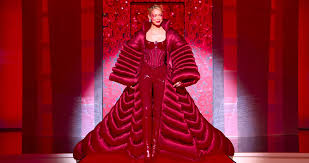Unveiling the Evolution of Men’s Fashion: Embrace Your Style with Confidence
Men’s Fashion: Embrace Your Style with Confidence
Fashion is not limited to women; it encompasses men as well. In recent years, men’s fashion has witnessed a significant transformation, breaking free from traditional norms and embracing a more diverse and expressive range of styles. Today, men have the opportunity to explore their personal style and create unique fashion statements that reflect their personality and individuality.
One of the key elements in men’s fashion is versatility. Gone are the days when men were confined to a limited selection of clothing options. From casual wear to formal attire, the choices available today are vast and exciting. Whether you prefer a classic tailored suit or a more relaxed streetwear ensemble, there is no shortage of options to suit your taste.
When it comes to casual wear, comfort is essential. Opt for well-fitted jeans or chinos paired with stylish t-shirts or polo shirts for a relaxed yet put-together look. Experiment with different colours and patterns to add some personality to your outfit. Layering is also an excellent way to elevate your style; throw on a lightweight jacket or cardigan over your shirt for added flair.
For formal occasions, nothing beats the timeless elegance of a well-tailored suit. Invest in quality fabrics and pay attention to details such as lapel width, jacket length, and trouser fit. A perfectly fitted suit can instantly boost your confidence and make you stand out from the crowd.
Accessories play a crucial role in completing any outfit. A stylish watch, a classic leather belt, or even a pocket square can add that extra touch of sophistication to your look. Don’t be afraid to experiment with accessories that reflect your personal style and enhance your overall appearance.
Footwear is another important aspect of men’s fashion that should not be overlooked. Whether you prefer classic leather shoes or trendy sneakers, choose footwear that complements your outfit while providing comfort throughout the day.
Remember that fashion is not just about following trends; it’s about expressing yourself and feeling confident in your own skin. Embrace your individuality and don’t be afraid to step out of your comfort zone. Experiment with different styles, colours, and patterns until you find what truly resonates with you.
Lastly, grooming is an integral part of men’s fashion. Pay attention to your hair, facial hair, and skincare routine. A well-groomed appearance can enhance your overall style and leave a lasting impression.
In conclusion, men’s fashion has evolved into a realm of endless possibilities. Embrace the freedom to express yourself through clothing choices that reflect your personality. Whether you prefer a classic or contemporary look, remember that confidence is the key to carrying any outfit with style. So go ahead, explore the world of men’s fashion, and make a statement that is uniquely yours!
6 Advantages of Men’s Fashion: Versatility, Affordability, Tailored Style, Trendiness, Low Maintenance, and Quality
- Mens fashion is often more versatile than womens, allowing for a greater range of outfit combinations.
- Mens clothing tends to be less expensive than womens, making it easier to build up a wardrobe on a budget.
- Mens fashion is often more tailored and structured, creating a neat and smart look.
- There are plenty of trendy styles available in mens fashion which can help keep your look up-to-date with the latest trends.
- Mens clothing generally requires less maintenance than womens, so you can save time and effort when caring for garments.
- With mens fashion there is an emphasis on quality over quantity, meaning you can invest in key pieces that will last longer and look better with age.
7 Cons of Men’s Fashion in the UK
- Limited choice of colours – Men’s fashion is often limited to more muted tones and darker shades, making it difficult to express individual style.
- Expensive – Some men’s clothing items can be expensive, particularly designer labels and luxury items.
- Uncomfortable fabrics – Many men’s fashion pieces are made from stiff, uncomfortable fabrics such as wool or polyester that can cause irritation or discomfort when worn for long periods of time.
- Poor fit – Menswear is often designed with a ‘one size fits all’ approach which can lead to an ill-fitting garment that looks sloppy and unappealing on the wearer.
- Lack of variety – Compared to women’s fashion, menswear offers fewer options in terms of styles and trends which can make it difficult for men to find something unique or different from what everyone else is wearing.
- Outdated trends – Menswear trends come and go quickly, meaning that a fashionable item one season may be out of style the next season leaving you with an outdated wardrobe in need of updating regularly.
- Limited accessories - Men have fewer accessories available than women do, making it harder for them to accessorise their outfit effectively in order to create a complete look
Mens fashion is often more versatile than womens, allowing for a greater range of outfit combinations.
When it comes to versatility in fashion, men often have the upper hand. Men’s fashion offers a wide range of options that allow for a greater variety of outfit combinations compared to women’s fashion. This versatility gives men the freedom to express their personal style in unique and creative ways.
One of the reasons why men’s fashion is more versatile is the simplicity and structure of many menswear pieces. Classic staples like trousers, shirts, and jackets can be mixed and matched effortlessly, creating numerous outfit possibilities. The clean lines and timeless designs of these garments make it easy to create both casual and formal looks with ease.
In addition, men’s fashion tends to focus on neutral colours and classic patterns, which further enhances its versatility. This allows for easy coordination between different pieces in a wardrobe. A well-curated collection of clothing can be mixed and matched to create various outfits suitable for different occasions.
Layering is another aspect where men’s fashion shines in terms of versatility. With layering, you can add depth and visual interest to your outfits by combining different garments such as shirts, sweaters, jackets, and coats. This technique allows you to adapt your style according to the weather or simply experiment with different looks.
Moreover, men’s accessories play a significant role in expanding the range of outfit combinations. From ties and bowties to pocket squares, belts, watches, hats, and even socks - accessories provide endless possibilities for adding personality and flair to an outfit. These small details can completely transform a look without much effort.
The versatility in men’s fashion not only allows for more outfit combinations but also promotes sustainability by maximizing the use of existing clothing items. By mixing and matching different pieces creatively, men can create new looks without constantly buying new clothes.
In conclusion, the versatility offered by men’s fashion is a definite advantage that allows for an extensive range of outfit combinations. From casual ensembles to formal attire or trendy streetwear looks - men have the freedom to experiment and express themselves through their clothing choices. So, embrace the versatility of men’s fashion and explore the countless possibilities it offers to create your own unique style.
Mens clothing tends to be less expensive than womens, making it easier to build up a wardrobe on a budget.
One of the advantages of men’s fashion is its affordability, making it easier to build a stylish wardrobe on a budget. Compared to women’s clothing, men’s apparel tends to be less expensive, allowing men to experiment with different styles and expand their wardrobe without breaking the bank.
This affordability factor is particularly beneficial for those who are conscious of their spending or have limited resources. Men can find a wide range of budget-friendly options in various retail outlets, both online and offline. From basic essentials like t-shirts and jeans to more formal attire such as suits and dress shirts, there are plenty of affordable choices available.
Moreover, the timeless nature of many men’s fashion staples contributes to their long-lasting value. Classic pieces like well-fitted trousers, versatile blazers, and quality shoes can be mixed and matched in various combinations, creating multiple outfits for different occasions. This versatility allows men to maximize their wardrobe options without constantly buying new items.
Another advantage is that men’s fashion tends to experience fewer drastic trends compared to women’s fashion. While there may still be seasonal variations and evolving styles, the changes are often more subtle and gradual. This means that investing in key pieces can provide longevity in terms of style relevance.
Additionally, the simplicity often associated with men’s clothing can also contribute to cost-effectiveness. The focus on clean lines, minimalistic designs, and neutral colors allows for easy coordination between different items in a wardrobe. This reduces the need for excessive purchases or constantly updating one’s closet.
In conclusion, the affordability of men’s clothing offers a significant advantage when it comes to building up a stylish wardrobe while sticking to a budget. With a wide range of affordable options available and the ability to create versatile outfits using classic pieces, men can confidently embrace their personal style without compromising on financial constraints. So whether you’re looking for casual wear or formal attire, exploring men’s fashion can be an exciting journey that won’t break the bank.
Mens fashion is often more tailored and structured, creating a neat and smart look.
Mens Fashion: The Perk of Tailored and Structured Style
When it comes to fashion, men have a distinct advantage in the realm of tailoring and structure. Unlike some women’s fashion trends that may prioritize flowy or oversized silhouettes, menswear often focuses on creating a neat and smart look through tailored and structured designs.
One of the significant benefits of this approach is that it instantly elevates a man’s appearance, exuding an air of sophistication and refinement. A well-tailored suit or a crisp button-down shirt can transform any man into a picture of elegance. The attention to detail in the construction and fit of these garments ensures that they flatter the male physique, enhancing its natural lines and contours.
The emphasis on tailoring also means that menswear tends to have a more polished and put-together aesthetic. The clean lines, precise cuts, and well-defined shapes contribute to an overall sleek appearance. This attention to structure creates a sense of professionalism and authority, making it ideal for formal occasions or business settings.
Furthermore, the tailored nature of mens fashion allows for versatility in styling. Pieces can be easily mixed and matched to create various looks while maintaining a cohesive style. Whether it’s pairing tailored trousers with a casual blazer for a smart-casual ensemble or donning a full suit for more formal events, the structured foundation offers endless possibilities.
Additionally, this focus on tailoring highlights quality craftsmanship in men’s fashion. Attention is given not only to the fit but also to the choice of fabrics, stitching techniques, and finishing details. These elements contribute to garments that are durable, long-lasting, and able to withstand the test of time.
Ultimately, menswear’s emphasis on tailored and structured style provides men with an opportunity to showcase their impeccable taste while exuding confidence. It allows them to effortlessly achieve a neat and smart look that is both timeless and versatile.
So whether you’re dressing up for a special occasion or simply aiming to make a polished impression in your day-to-day life, embrace the advantage of mens fashion’s tailored and structured approach. Invest in well-fitted garments, pay attention to the finer details, and enjoy the confidence that comes with sporting a look that is both refined and effortlessly stylish.
There are plenty of trendy styles available in mens fashion which can help keep your look up-to-date with the latest trends.
Stay Fashionably Current: Embrace Trendy Styles in Men’s Fashion
Gone are the days when men’s fashion was limited to a few basic styles. Today, the world of men’s fashion is teeming with trendy options that can help you stay up-to-date with the latest style trends. Whether you’re a fashion enthusiast or simply want to elevate your everyday look, embracing these trendy styles can add a touch of modernity and freshness to your wardrobe.
One of the advantages of following trendy styles is that they allow you to experiment with different looks and express your personal style. From streetwear-inspired outfits to sleek and minimalistic ensembles, there is something for everyone. By incorporating trendy pieces into your wardrobe, you can effortlessly keep your look current and showcase your fashion-forward sensibilities.
The beauty of following trends in men’s fashion lies in the variety of options available. From statement prints and bold colours to unique cuts and textures, there is no shortage of choices to suit different tastes and preferences. Whether you prefer a more understated approach or enjoy making a bold statement, there are trendy styles that cater to every individual.
Moreover, staying current with the latest trends allows you to adapt your style to different occasions and settings. Whether it’s a casual outing with friends or a formal event, having access to trendy styles ensures that you always have appropriate options at hand. You can effortlessly switch between different looks while maintaining a sense of contemporary flair.
Following trendy styles also keeps your wardrobe feeling fresh and exciting. It prevents your style from becoming stagnant or outdated by introducing new elements into your outfits. By regularly updating your clothing choices with fashionable pieces, you can avoid falling into a fashion rut and maintain an air of modernity.
Lastly, embracing trendy styles in men’s fashion allows you to connect with others who share similar interests. Fashion has become an avenue for self-expression and a way for individuals to connect over shared passions. By staying on top of the latest trends, you can engage in conversations, exchange style tips, and become part of a larger fashion community.
In conclusion, there are countless trendy styles available in men’s fashion that can help keep your look up-to-date with the latest trends. By incorporating these styles into your wardrobe, you can showcase your personal style, adapt to different occasions, and keep your fashion choices fresh and exciting. So why not explore the world of trendy men’s fashion and elevate your style to new heights?
Mens clothing generally requires less maintenance than womens, so you can save time and effort when caring for garments.
One of the advantages of men’s fashion is that it generally requires less maintenance compared to women’s clothing. This means that men can save valuable time and effort when it comes to caring for their garments.
Unlike women’s clothing, which often includes delicate fabrics, intricate designs, and intricate embellishments, men’s clothing tends to be more straightforward in terms of construction and materials. This simplicity translates into less time spent on laundry, ironing, and other maintenance tasks.
Men’s shirts, for example, are typically made from durable fabrics that are easier to care for. They can withstand regular washing without losing their shape or colour. Additionally, men’s trousers are often made from sturdy materials that resist wrinkles and creases, reducing the need for excessive ironing.
Another advantage is that men’s fashion often follows classic styles and timeless designs. This means that trends come and go at a slower pace compared to women’s fashion. By investing in well-made, timeless pieces, men can build a versatile wardrobe that doesn’t require constant updating. This not only saves time but also reduces the overall cost of maintaining a fashionable wardrobe.
Moreover, the simplicity of men’s fashion extends to accessories as well. Men typically have fewer accessories to manage compared to women. While women may have an array of jewellery pieces, scarves, handbags, and other accessories to coordinate with their outfits, men usually rely on a few key items such as watches or belts. This streamlined approach makes it easier to keep track of accessories and simplifies the overall maintenance process.
In conclusion, one significant advantage of men’s fashion is its lower maintenance requirements compared to women’s clothing. With durable fabrics and timeless designs at the forefront, caring for men’s garments becomes less time-consuming and more straightforward. So gentlemen, take advantage of this benefit by building a stylish wardrobe that allows you to save time and effort while still looking sharp!
With mens fashion there is an emphasis on quality over quantity, meaning you can invest in key pieces that will last longer and look better with age.
One of the great advantages of men’s fashion is the emphasis on quality over quantity. Unlike fast fashion trends that come and go, investing in key pieces allows men to build a wardrobe that lasts longer and looks better with age.
When it comes to quality, attention to detail is paramount. From the choice of fabrics to the craftsmanship, every aspect of a well-made garment is carefully considered. This results in clothing that not only withstands the test of time but also improves in appearance as it ages.
Investing in key pieces means selecting items that are versatile and timeless. A classic tailored suit, a well-crafted leather jacket, or a pair of high-quality denim jeans can be worn for years without losing their appeal. These pieces become wardrobe staples that can be styled differently for various occasions, providing endless outfit possibilities.
Not only does quality clothing last longer, but it also tends to look better as it ages. Fabrics such as denim and leather develop a unique patina over time, giving them character and a sense of individuality. This natural aging process adds depth and authenticity to your style, creating a distinctive look that cannot be replicated with mass-produced items.
Moreover, investing in quality pieces can actually save you money in the long run. While initially more expensive than their fast fashion counterparts, well-made garments are designed to withstand frequent wear and washing without losing their shape or colour. By avoiding disposable clothing and opting for durable pieces, you reduce the need for constant replacements.
In addition to longevity and aesthetics, there is also an environmental benefit to valuing quality over quantity. Fast fashion has contributed to significant waste and pollution in the industry. By choosing fewer but higher-quality items, you actively contribute to reducing your carbon footprint and supporting sustainable practices within the fashion world.
In conclusion, men’s fashion offers a pro that focuses on quality over quantity. By investing in key pieces that are well-crafted and timeless, men can build a wardrobe that not only lasts longer but also improves in appearance with age. This approach not only saves money in the long run but also contributes to a more sustainable and environmentally conscious fashion industry. So, embrace the concept of quality over quantity and elevate your style with pieces that will stand the test of time.
Limited choice of colours – Men’s fashion is often limited to more muted tones and darker shades, making it difficult to express individual style.
Limited choice of colours – A Conundrum in Men’s Fashion
When it comes to men’s fashion, one con that often arises is the limited choice of colours available. Unlike women’s fashion, which boasts a vibrant spectrum of hues, men’s fashion tends to gravitate towards more muted tones and darker shades. While this may be seen as a classic and timeless approach, it can sometimes pose challenges for those seeking to express their individual style.
The prevalence of neutral colours such as black, grey, navy, and brown dominates men’s fashion. These shades are undoubtedly versatile and easy to match with various outfits. However, they can also create a sense of monotony and limit the opportunity for self-expression through clothing.
Men who wish to explore bolder and more vibrant colours may find themselves searching harder to find options that suit their taste. Expressing individuality becomes more challenging when the available choices seem confined within a narrow range. This limitation can stifle creativity and prevent men from fully embracing their unique style preferences.
Fortunately, the tide is slowly turning in favour of diversifying the colour palette in men’s fashion. Designers are beginning to incorporate brighter hues into their collections, offering alternatives beyond the traditional neutrals. From pastel shades to bold primary colours, these emerging choices provide an opportunity for men to break free from the monotony and inject some personality into their wardrobes.
To overcome this conundrum of limited colour choices in men’s fashion, it is important for individuals to actively seek out brands and designers that offer a broader selection. Explore independent labels or niche boutiques that specialize in unique and unconventional styles. Additionally, consider experimenting with accessories like ties, pocket squares, socks or even statement shoes as a way to introduce pops of colour into an otherwise subdued outfit.
Remember that fashion is all about self-expression and feeling confident in what you wear. While there may be limitations in the traditional offerings of men’s fashion, it should not deter individuals from exploring their own unique style. Embrace the challenge, seek out alternative options, and dare to break away from the norm. After all, true style knows no boundaries when it comes to colour.
Expensive – Some men’s clothing items can be expensive, particularly designer labels and luxury items.
Expensive: The Conundrum of Men’s Fashion
When it comes to men’s fashion, one unavoidable con is the potential cost. It’s no secret that some clothing items can come with a hefty price tag, especially when we delve into the realm of designer labels and luxury brands. While investing in quality pieces can be worthwhile, it’s essential to be mindful of your budget and make informed choices.
Designer labels often carry a certain allure, with their impeccable craftsmanship and unique designs. However, this exclusivity often comes at a price. The cost of these high-end items can be significantly higher than their more affordable counterparts. From tailored suits to statement accessories, the allure of luxury fashion can sometimes leave a dent in your wallet.
The expense associated with men’s fashion can be attributed to various factors. The use of premium fabrics, intricate detailing, and the brand reputation all contribute to the elevated price tags. Additionally, limited edition or rare pieces tend to command higher prices due to their scarcity in the market.
That being said, it’s important to remember that expensive doesn’t always equate to better quality or style. There are plenty of affordable brands that offer well-crafted clothing without breaking the bank. By exploring different options and being vigilant about sales or discounts, you can find stylish pieces that align with your budget.
Another way to navigate the cost conundrum is by focusing on building a versatile wardrobe with timeless staples. Investing in classic pieces such as well-fitted trousers, tailored shirts, and quality shoes ensures longevity and versatility in your outfits. These foundational items can be paired with more affordable accessories or trendier pieces to create a polished look without overspending.
Furthermore, consider exploring second-hand or vintage stores where you may stumble upon hidden gems at a fraction of the original price. Thrifting not only allows you to find unique pieces but also promotes sustainability by giving pre-loved clothes a new lease on life.
Ultimately, the expense associated with men’s fashion is a con that requires careful consideration. While luxury brands may offer prestige and exceptional craftsmanship, it’s crucial to assess your personal priorities and budget before making a purchase. Remember that style is not solely defined by the price tag but by how you carry yourself and express your individuality.
So, whether you choose to splurge on a designer item or opt for more affordable alternatives, always prioritize your financial well-being while still enjoying the ever-evolving world of men’s fashion.
Uncomfortable fabrics – Many men’s fashion pieces are made from stiff, uncomfortable fabrics such as wool or polyester that can cause irritation or discomfort when worn for long periods of time.
Uncomfortable Fabrics: A Con in Men’s Fashion
While men’s fashion offers a wide range of styles and choices, one con that often surfaces is the use of uncomfortable fabrics. Many fashion pieces, particularly suits and formal wear, are made from stiff and scratchy materials like wool or polyester. These fabrics can cause irritation or discomfort when worn for long periods of time, hindering the overall experience of wearing fashionable attire.
One common culprit is wool, known for its warmth and durability. However, its coarse texture can be uncomfortable against the skin, especially for those with sensitive skin. Wearing a wool suit or sweater for an extended period can lead to itchiness and irritation, making it less than ideal for all-day wear.
Polyester is another fabric frequently used in men’s fashion due to its affordability and wrinkle-resistant properties. While it may offer convenience, polyester can trap heat against the body and hinder breathability, leading to discomfort during warmer weather or in situations where physical activity is involved.
The discomfort caused by these fabrics is not limited to formal occasions alone; even casual wear can suffer from this issue. Shirts made from stiff cotton blends or synthetic materials may restrict movement and fail to provide the desired level of comfort throughout the day.
Fortunately, there are solutions to mitigate this con in men’s fashion. One option is to seek out clothing made from natural fibers such as cotton or linen. These materials tend to be softer on the skin and allow better airflow, enhancing comfort even during extended wear.
Additionally, advancements in textile technology have led to the development of innovative fabrics specifically designed for comfort. Fabrics infused with moisture-wicking properties or stretch materials provide a more comfortable fit while maintaining style.
When shopping for men’s fashion pieces, it is crucial to prioritize not only style but also comfort. Pay attention to fabric composition and seek out brands that prioritize using soft and breathable materials without compromising on aesthetics.
In conclusion, the use of uncomfortable fabrics in men’s fashion can be a drawback, causing irritation and discomfort when worn for extended periods. However, by being mindful of fabric choices and exploring alternative materials, it is possible to find stylish attire that prioritizes both fashion and comfort. Remember that feeling good in what you wear is just as important as looking good.
Poor fit – Menswear is often designed with a ‘one size fits all’ approach which can lead to an ill-fitting garment that looks sloppy and unappealing on the wearer.
Poor Fit: A Conundrum in Men’s Fashion
When it comes to men’s fashion, one of the most common pitfalls is the issue of poor fit. It’s a frustrating conundrum that many men face: finding garments that are designed with a ‘one size fits all’ approach, resulting in ill-fitting clothes that look sloppy and unappealing on the wearer.
The problem lies in the fact that men’s clothing often lacks the same level of attention to fit as women’s fashion. While women have a plethora of options when it comes to different body types and sizes, men are often left with limited choices that fail to cater to their individual proportions.
The consequences of this poor fit can be seen in various aspects of men’s fashion. Baggy shirts with excess fabric hanging around the waist, trousers that are either too long or too short, or jackets that don’t sit properly on the shoulders – these are just a few examples of how an ill-fitting garment can detract from an otherwise stylish outfit.
Not only does poor fit compromise the overall aesthetic appeal, but it also affects comfort and confidence. Wearing clothes that don’t fit well can make you feel self-conscious and hinder your ability to move freely. It’s difficult to exude confidence when you’re constantly adjusting your clothes or feeling uncomfortable in them.
Fortunately, there are ways to overcome this conundrum. One option is to seek out brands or designers that prioritize proper fit and offer a range of sizes and cuts. Look for labels that understand the diversity of body shapes and provide options tailored specifically for different proportions.
Another solution is to consider investing in custom tailoring. While it may require a higher budget, having garments made specifically for your body measurements ensures a perfect fit every time. Custom tailoring allows you to choose fabrics, styles, and details according to your preferences while ensuring a flattering silhouette.
Additionally, paying attention to alterations can make a significant difference. A simple adjustment to the length of trousers or sleeves can transform an ill-fitting garment into one that complements your body shape and enhances your overall appearance.
In conclusion, poor fit remains a con in men’s fashion that needs to be addressed. The ‘one size fits all’ approach often leads to ill-fitting clothes that undermine the wearer’s style and confidence. However, by seeking out brands that prioritize fit, investing in custom tailoring, or making alterations when necessary, men can overcome this obstacle and enjoy garments that not only look great but also make them feel comfortable and self-assured.
Lack of variety – Compared to women’s fashion, menswear offers fewer options in terms of styles and trends which can make it difficult for men to find something unique or different from what everyone else is wearing.
Lack of Variety in Men’s Fashion: Breaking Free from the Norm
When it comes to men’s fashion, one con that often comes up is the perceived lack of variety compared to women’s fashion. While the fashion industry has made significant strides in recent years, it is true that men’s clothing options can sometimes feel limited, making it challenging for men to find something unique or different from what everyone else is wearing.
Unlike women’s fashion, which offers a plethora of styles, trends, and experimental designs, men’s fashion has traditionally adhered to more conservative and timeless aesthetics. This can result in a sense of sameness among men’s clothing choices, with many individuals feeling like they are blending into the crowd rather than standing out.
However, it is important to note that the landscape of men’s fashion is evolving. Designers and brands are gradually breaking free from traditional norms and embracing more diverse and expressive styles for men. The industry is witnessing a shift towards bolder colours, patterns, and innovative cuts.
To overcome the lack of variety in men’s fashion, it is essential for individuals to explore different avenues and seek out brands that offer unique styles or alternative approaches. Look beyond mainstream retailers and consider boutique stores or independent designers who specialize in creating distinctive menswear pieces.
Another way to add variety to your wardrobe is by experimenting with accessories. Accessories can be a game-changer when it comes to personal style. From statement watches and bold ties to eye-catching socks or pocket squares, these small additions can inject personality into even the most basic outfits.
Additionally, don’t be afraid to mix and match different elements from various styles. For instance, you can combine classic pieces with contemporary ones or incorporate elements from different cultural influences into your outfits. This approach allows you to create a look that reflects your individuality while still maintaining a sense of sartorial elegance.
Furthermore, consider exploring vintage or thrift stores for one-of-a-kind pieces. These stores often offer a treasure trove of unique clothing items that can help you stand out from the crowd while adding a touch of nostalgia to your wardrobe.
While it may be true that men’s fashion has historically offered fewer options compared to women’s fashion, the industry is gradually shifting towards more variety and inclusivity. By actively seeking out alternative brands, experimenting with accessories, and embracing different styles, men can break free from the norm and create their own distinctive fashion statements. Remember, fashion is about self-expression, so don’t be afraid to step outside of your comfort zone and showcase your unique style to the world.
Outdated trends – Menswear trends come and go quickly, meaning that a fashionable item one season may be out of style the next season leaving you with an outdated wardrobe in need of updating regularly.
Outdated Trends: Navigating the Ever-Changing Landscape of Men’s Fashion
In the fast-paced world of men’s fashion, trends come and go with lightning speed. What may be considered stylish and on-trend one season could easily become outdated and passé the next. This constant evolution can leave fashion-conscious individuals with a wardrobe in need of regular updating to stay current.
One of the downsides of men’s fashion is the fleeting nature of trends. It can be disheartening to invest in a fashionable item, only to find it falling out of favour within a short period. This phenomenon often leads to a sense of urgency to keep up with the latest trends, resulting in frequent shopping trips and an ever-growing collection of clothes.
However, it’s important to remember that not all trends are meant to stand the test of time. Fashion is an ever-changing expression of creativity and individuality. While it can be exciting to embrace new styles, it’s equally important to cultivate a personal sense of style that transcends fleeting trends.
Instead of solely relying on trendy pieces, consider building a wardrobe foundation based on timeless classics. Invest in well-fitted basics such as tailored suits, quality shirts, versatile trousers, and classic footwear that can withstand the ebb and flow of passing fads. These timeless essentials serve as a solid base upon which you can experiment with trendier accessories or statement pieces.
Another approach is to focus on incorporating subtle nods to current trends through accessories or smaller details rather than fully committing to passing fads. This way, you can add a touch of contemporary flair without sacrificing your entire wardrobe when trends inevitably shift.
Additionally, consider developing your personal style by understanding what truly resonates with you rather than blindly following every trend that emerges. Experiment with different silhouettes, colours, and textures that align with your own taste and personality. By doing so, you’ll create a wardrobe that reflects your unique identity rather than conforming to the ever-changing whims of fashion.
While it can be frustrating to witness trends come and go, it’s important to remember that fashion is ultimately about self-expression and feeling confident in what you wear. By striking a balance between incorporating current trends and building a foundation of timeless pieces, you can navigate the ever-changing landscape of men’s fashion with style and individuality.
So, rather than feeling overwhelmed by the need to constantly update your wardrobe, embrace the opportunity to curate a collection that reflects your personal style and stands the test of time. After all, true style transcends trends and leaves a lasting impression.
Limited accessories - Men have fewer accessories available than women do, making it harder for them to accessorise their outfit effectively in order to create a complete look
Limited Accessories: Breaking the Boundaries of Men’s Fashion
When it comes to fashion, men often find themselves with a smaller selection of accessories compared to their female counterparts. This limitation can sometimes make it challenging for men to accessorize their outfits effectively and create a complete and polished look. However, it’s important to remember that challenges can also be opportunities for creativity and innovation.
While women have an extensive range of accessories available, including jewelry, scarves, handbags, and hats, men traditionally have fewer options. This has often led to the perception that men’s fashion is limited in terms of variety and self-expression. However, with changing trends and evolving fashion norms, the boundaries are gradually being broken.
Men now have access to a growing range of accessories that can elevate their style game. From classic pieces like watches and cufflinks to more contemporary additions such as statement belts, sunglasses, and stylish bags, the choices are expanding.
The key lies in understanding how to use these limited accessories effectively. By carefully selecting a few standout pieces that complement your outfit, you can create a cohesive look that exudes confidence and style. For example, a well-chosen watch can instantly elevate your appearance while adding a touch of sophistication. Similarly, a stylish belt or a sleek pair of sunglasses can make a significant impact on your overall ensemble.
Another way men can overcome the limited accessory con is by paying attention to details. Small elements like pocket squares, tie bars or pins, lapel pins or badges can add subtle yet impactful touches to any outfit. These accessories allow you to inject personality into your look without overpowering it.
Additionally, exploring alternative ways to accessorize can further enhance your style game. Experiment with different hairstyles or facial hair styles that complement your outfit and bring out your best features. A well-groomed appearance is an accessory in itself.
Remember that accessorizing is not just about following trends; it’s about expressing yourself and enhancing your personal style. It’s about finding those unique pieces that resonate with you and make a statement. So, embrace the limited accessories available and use them as opportunities to showcase your individuality.
In conclusion, while men may have a smaller selection of accessories compared to women, it doesn’t mean their fashion choices are limited. With a growing range of options and the ability to pay attention to details, men can effectively accessorize their outfits and create complete looks that reflect their personal style. So, let’s break the boundaries and redefine men’s fashion by embracing the power of limited accessories.
